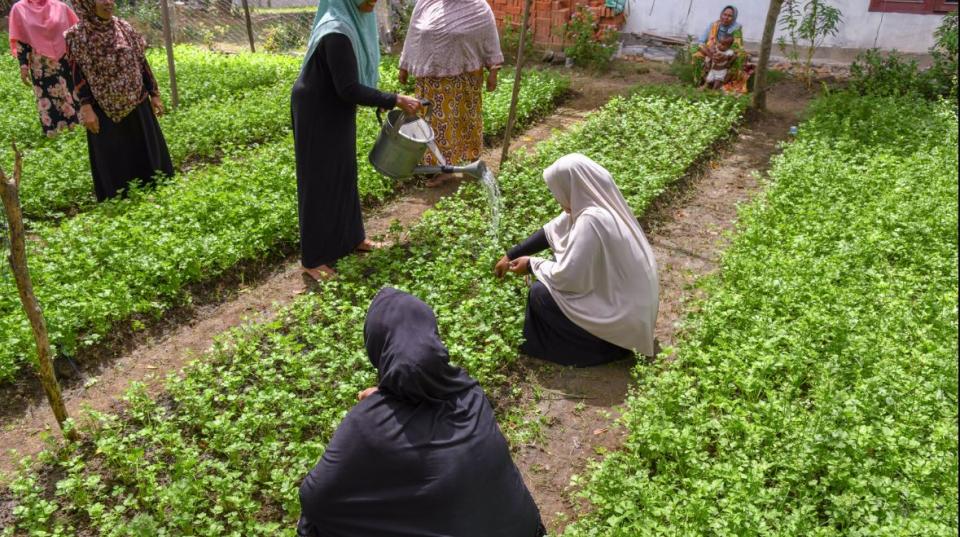Overview
The most important vegetable crops grown in Indonesia, and particularly lowland coastal production, are the true shallot (Allium cepa var aggregatum) and chilli (Capsicum annuum). These crops are usually grown in rotation with rice but are far more valuable crops and are increasingly in high demand. They offer an opportunity for small farmers to generate extra income, increase farm profitability and shift away from subsistence production. However, the yield and profitability of shallot and chilli production is severely limited by a range of agronomic constraints. The major issues affecting the productivity and profitability of these cropping systems are the management of fungal and viral diseases, the supply of disease free shallot seed-bulb and the overuse of nitrogen fertiliser and chemicals (Harper et al. 2010). These limitations are further compounded as peak demand for these commodities coincides with significant cultural and festive occasions that do not correspond to optimal production periods.
This project aimed to raise the productivity of allium (shallot and garlic) and chilli/capsicum cropping systems through improved agronomy and had the following specific objectives.
- To characterise the agronomic practices of shallot-chilli-rice production systems.
- To identify and quantify the incidence of significant pathogens and agronomic issues in allium and solanaceous crops.
- To evaluate the opportunity for developing a system to supply clean pathogen tested allium seed-bulbs.
- To evaluate, develop and promote improved shallot/chilli agronomy and disease management strategies.




